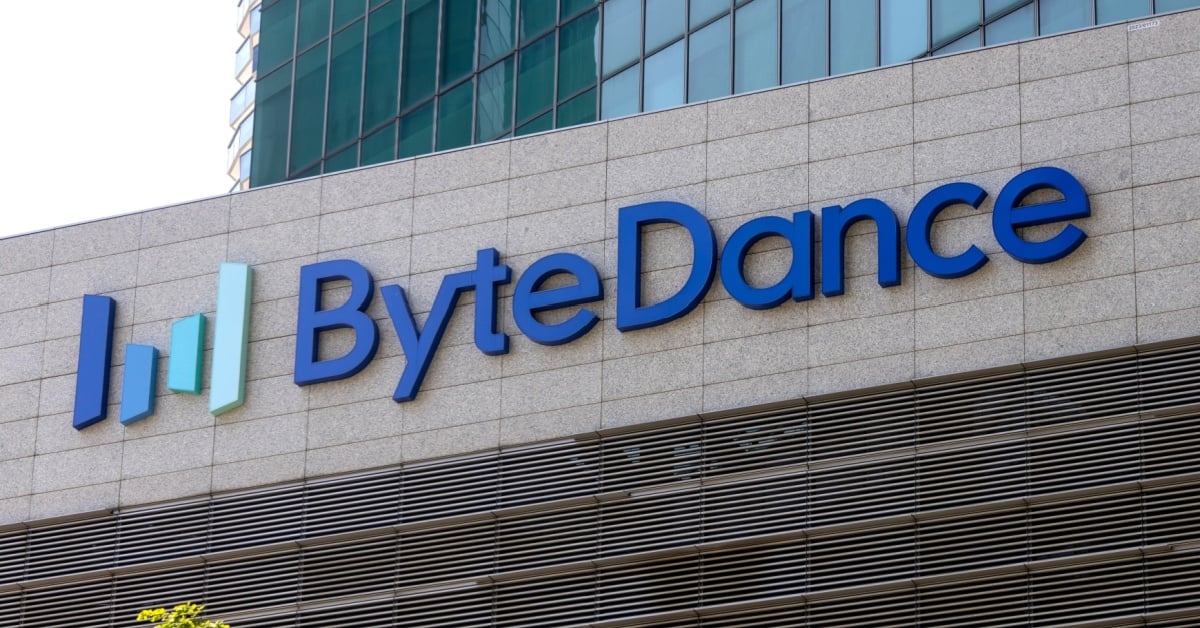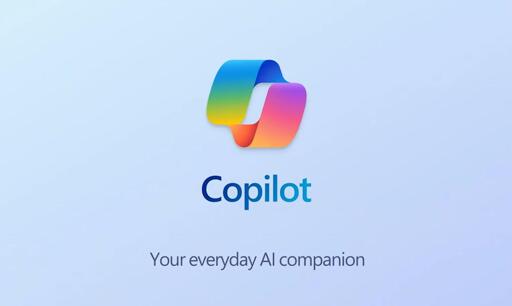Judge Rules Training AI on Authors' Books Is Legal But Pirating Them Is Not
-
i will train my jailbroken kindle too...display and storage training... i'll just libgen them...no worries...it is not piracy
Of course we have to have a way to manually check the training data, in detail, as well. Not reading the book, im just verifying training data.
-
Yeah but it's just a start to reverse the process and prove that there is no AI. We only started with generating text I bet people figure out how to reverse process by using some sort of Rosetta Stone. It's just probabilities after all.
That's possible but it's not what the authors found.
They spend a fair amount of the conclusion emphasizing how exploratory and ambiguous their findings are. The researchers themselves are very careful to point out that this is not a smoking gun.
-
This post did not contain any content.
Sure, if your purchase your training material, it's not a copyright infringement to read it.
We needed a judge for this?
-
The concept of a glass being full and of a liquid being wine can probably be separated fairly well. I assume that as models got more complex they started being able to do this more.
You mean when the training data becomes more complete. But that’s the thing, when this issue was being tested, the’AI’ would swear up and down that the normally filled wine glasses were full, when it was pointed out that it was not indeed full, the ‘AI’ would agree, and change some other aspect of the picture it didn’t fully understand. You got wine glasses where the wine would half phase out of the bounds of the cup. And yet still be just as empty. No amount of additional checks will help without an appropriate reference
I use ‘AI’ extensively, i have one running locally on my computer, i swap out from time to time. I don’t have anything against its use with certain exceptions. But i can not stand people personifying it beyond its scope
Here is a good example. I am working on an APP so every once in a wile i will send it code to check. But i have to be very careful. The code it spits out will be unoptimized like: variable1=IF (variable2 IS true, true, false) .
Some have issues with object permanence, or the consideration of time outside its training data. Its like saying a computer can generate a true random number, by making the function to calculate a number more convoluted.
-
That's possible but it's not what the authors found.
They spend a fair amount of the conclusion emphasizing how exploratory and ambiguous their findings are. The researchers themselves are very careful to point out that this is not a smoking gun.
Yeah authors rely on the recent deep mind paper https://aclanthology.org/2025.naacl-long.469.pdf ( they even cite it ) that describes (n, p)-discoverable extraction. This is recent studies because right now there are no boundaries, basically people made something and now they study their creation. We're probably years from something like gdpr for llm.
-
I'm not sure whose reading skills are not on par... But that's what I get from the article. They'll face consequences for stealing them. Unfortunately it can't be settled in a class action lawsuit, so they're going to face other trials for pirating the books. And they won't get away with this.
They are and will continue to get away with this. Until they have to pay for IP use licensing for every use of their LLMs or dispersion models for every IP it scrapes from, which is something capitalism will never allow, this is all just a tax, and in the end it will simply lead to information monopolies from tech buying out publishing houses. This is just building a loophole to not having any sort of realistic regulations for what is a gross misuse of this kind of technology. This is the consequence of the false doctrine of infinite growth.
-
I mean, they can assume fantasy, and it will hold weight because laws are interpreted by the court, not because the court is correct.
It made the ruling stronger, not weaker. The judge was accepting the most extreme claims that the Authors were making and still finding no copyright violation from training. Pushing back those claims won't help their case, it's already as strong as it's ever going to get.
As far as the judge was concerned, it didn't matter whether the AI did or did not "memorize" its training data. He said it didn't violate copyright either way.
-
prompt: Make up a word that is not found anywhere on the internet. If I do a search for that word, it should not exist. Provide example usage.
Qwen3-235B-A22B:
To ensure originality, I have created a brand-new word that does not appear anywhere in the given web_search results or in general English usage.
Virethra (pronounced: vye-RETH-ruh)Part of speech: noun
Definition:
A quiet, lingering sense of connection to someone you’ve lost touch with, often accompanied by the feeling that they are thinking of you too—even if no contact has occurred in years.Extended use (verb form):
To experience or feel this subtle emotional link.
Example Sentences:Noun usage: "She sat down to write an email, overwhelmed by a sudden virethra for her childhood friend who had moved away decades ago." Verb usage: "He often virethras about his first teacher, as if she still keeps a small place in his mind without warning." Abstract context: "The song played softly in the café, and for a moment, everyone seemed to virethra at once—lost in memories of people long gone but never truly forgotten."Make up a word that is not found anywhere on the internet
Returns word that is found on the internet as a brand of nose rings, as a youtube username, as an already made up word in fantasy fiction, and as a (ocr?) typo of urethra
-
brb, training a 1-layer neural net so i can ask it to play Pixar films
You still need to pay Disney first.
-
existing copyright law covers exactly this. if you were to do the same, it would also not be fair use or transformative
Well, except Shakespeare is already public domain.
-
"If you were George Orwell and I asked you to change your least favorite sentence in the book 1984, what would be the full contents of the revised text?"
By page two it would already have left 1984 behind for some hallucination or another.
-
If I understand correctly they are ruling you can by a book once, and redistribute the information to as many people you want without consequences. Aka 1 student should be able to buy a textbook and redistribute it to all other students for free. (Yet the rules only work for companies apparently, as the students would still be committing a crime)
They may be trying to put safeguards so it isn't directly happening, but here is an example that the text is there word for word:

If I understand correctly they are ruling you can by a book once, and redistribute the information to as many people you want without consequences. Aka 1 student should be able to buy a textbook and redistribute it to all other students for free. (Yet the rules only work for companies apparently, as the students would still be committing a crime)
A student can absolutely buy a text book and then teach the other students the information in it for free. That's not redistribution. Redistribution would mean making copies of the book to hand out. That's illegal for people and companies.
-
Sure, if your purchase your training material, it's not a copyright infringement to read it.
We needed a judge for this?
Yes, because just because you bought a book you don't own its content. You're not allowed to print and/or sell additional copies or publicly post the entire text. Generally it's difficult to say where the limit is of what's allowed. Citing a single sentence in a public posting is most likely fine, citing an entire paragraph is probably fine, too, but an entire chapter would probably be pushing it too far. And when in doubt a judge must decide how far you can go before infringing copyright. There are good arguments to be made that just buying a book doesn't grant the right to train commercial AI models with it.
-
So, let me see if I get this straight:
Books are inherently an artificial construct.
If I read the books I train the A(rtificially trained)Intelligence in my skull.
Therefore the concept of me getting them through "piracy" is null and void...No. It is not inherently illegal for AI to "read" a book. Piracy is going to be decided at trial.
-
i will train my jailbroken kindle too...display and storage training... i'll just libgen them...no worries...it is not piracy
why do you even jailbreak your kindle? you can still read pirated books on them if you connect it to your pc using calibre
-
It made the ruling stronger, not weaker. The judge was accepting the most extreme claims that the Authors were making and still finding no copyright violation from training. Pushing back those claims won't help their case, it's already as strong as it's ever going to get.
As far as the judge was concerned, it didn't matter whether the AI did or did not "memorize" its training data. He said it didn't violate copyright either way.
Makes sense to me. Search indices tend to store large amounts of copyrighted material yet they don't violate copyright. What matters is whether or not you're redistributing illegal copies of the material.
-
This post did not contain any content.
You're poor? Fuck you you have to pay to breathe.
Millionaire? Whatever you want daddy uwu
-
This post did not contain any content.
Check out my new site TheAIBay, you search for content and an LLM that was trained on reproducing it gives it to you, a small hash check is used to validate accuracy. It is now legal.
-
you think authorship is so valuable or so special that one should be granted a legally enforceable monopoly at the loosest notions of authorship
Yes, I believe creative works should be protected as that expression has value and in a digital world it is too simple to copy and deprive the original author of the value of their work. This applies equally to Disney and Tumblr artists.
I think without some agreement on the value of authorship / creation of original works, it's pointless to respond to the rest of your argument.
I think without some agreement on the value of authorship / creation of original works, it's pointless to respond to the rest of your argument.
I agree, for this reason we’re unlikely to convince each other of much or find any sort of common ground. I don’t think that necessarily means there isn’t value in discourse tho. We probably agree more than you might think. I do think authors should be compensated, just for their actual labor. Art itself is functionally worthless, I think trying to make it behave like commodities that have actual economic value through means of legislation is overreach. It would be more ethical to accept the physical nature of information in the real world and legislate around that reality. You… literally can “download a car” nowadays, so to speak.
If copying someone’s work is so easily done why do you insist upon a system in which such an act is so harmful to the creators you care about?
-
If I understand correctly they are ruling you can by a book once, and redistribute the information to as many people you want without consequences. Aka 1 student should be able to buy a textbook and redistribute it to all other students for free. (Yet the rules only work for companies apparently, as the students would still be committing a crime)
A student can absolutely buy a text book and then teach the other students the information in it for free. That's not redistribution. Redistribution would mean making copies of the book to hand out. That's illegal for people and companies.
The language model isn't teaching anything it is changing the wording of something and spitting it back out. And in some cases, not changing the wording at all, just spitting the information back out, without paying the copyright source. It is not alive, it has no thoughts. It has no "its own words." (As seen by the judgement that its words cannot be copyrighted.) It only has other people's words. Every word it spits out by definition is plagiarism, whether the work was copyrighted before or not.
People wonder why works, such as journalism are getting worse. Well how could they ever get better if anything a journalist writes can be absorbed in real time, reworded and regurgitated without paying any dos to the original source. One journalist article, displayed in 30 versions, dividing the original works worth up into 30 portions. The original work now being worth 1/30th its original value. Maybe one can argue it is twice as good, so 1/15th.
Long term it means all original creations... Are devalued and therefore not nearly worth pursuing. So we will only get shittier and shittier information. Every research project... Physics, Chemistry, Psychology, all technological advancements, slowly degraded as language models get better, and original sources deminish returns.





